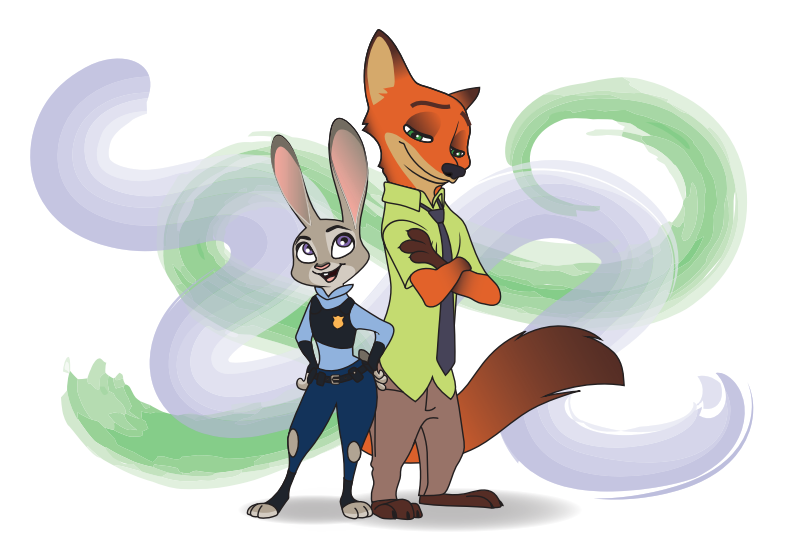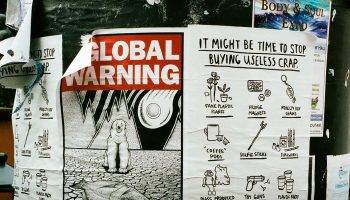The Disney Revival continues its ascent with the addition of Zootopia, which is being lauded by critics as ‘the greatest movie Disney has ever made.’ Call the appraisal histrionic, but this is the movie that dropped a whopping 0% in ticket sales after its opening weekend. After topping the box office adjacent to a certain Dawning of Justice (which, by comparison, suffered a 68% drop), there’s no doubt the studio’s latest endeavour claims its well-deserved position at the apex of the cinematic food chain.
Preliminary reviews of the film hit every apple of Disney’s eye. For starters, Zootopia actually has a coherent narrative, one that initially plays out as just a buddy-cop comedy between two unlikely allies. Rookie cop Judy Hopps and con artist Nick Wilde are forced to collude in order to save the former’s new job, and the latter from a life-time of jail. The disparate elements it manages to bring together are pretty astounding; it retains that classic, fable-esque Disney core, hides as many pop culture Easter Eggs as can be crammed into its 1 ½ hour long basket, features an anthropomorphic Shakira, all while managing to play out a bit like “The Wire with webbed feet” (Jason Johnson, The Root). Eventually the two manage to crack the case wide open, and with it, unleash a socio-political Pandora’s Box on to cinemas full of children all around the world. Don’t get me wrong, Zootopia is still an animated movie that delivers punchy moments and spot-on comedic timing, without always needing to bring in any sloths or DMVs. But subversively, its subject matter analogises some contemporary disputes. In the film, children may laugh harder, but adults laugh longer, because the disjunction between the light-hearted tone the film establishes in its opening is leaps and bounds from the message conveyed, and the polarising effect it has on audiences who’ve had a chance to reflect.
A fundamental problem lies at the heart of how Zootopia frames its favoured subject matter – racism and prejudice, on a primal, pixelated level. The overarching metaphor is quite clear; animals are analogous to different ethnicities in a multicultural society, just like how contemporary cities are melting pots of culture and diversity. What’s also clear is that, just because Zootopia is a fictional place, that doesn’t mean it’s necessarily eternal sunshine and spotless minds. Despite their evolution, the natural predator-versus-prey dichotomy embeds stereotypes into the mammalian utopia, meaning its inhabitants are faced with casual bigotry in their day-to-day lives. There are some benign examples, like when Hopps reprimands somebody for calling her “cute”, an adjective for exclusive use between bunnies and bunnies alone. But there are malign examples too, like when it is revealed Wilde was severely bullied as a child for becoming the only Junior Ranger Scout predator, a position traditionally held only by prey. This story is starting to sound familiar. Despite progressive world views in our own society, to some extent stereotyping of certain races continues to permeate people’s lives, sometimes in fairly derogatory ways.
What disrupts this metaphor are the semantics that kids didn’t notice, but adults did. It’s a structural oversight that has to do with how the institution of Zootopia itself is set up, which is “poorly coded” (Todd VanDerWerff, Vox). When Assistant Mayor Bellwether, a lamb and (spoiler) mastermind behind the distribution of drugs that force predators to return to their pre-evolutionary savage behaviour, declares her motives, she claims it’s to initiate an uprising against the powerful. In the movie, predators still retain more dominant, aggressive roles in society, like those of policemen and government officials, whereas prey are systematically referred to as ‘the little guy.’ But in the same speech, Bellwether also mentions prey make up the majority of the population at 90%, making predators the minority of 10%. The fundamental chain of command the film is built on is never truly mirrors our society in the way Disney alludes. If we agree with the majority/minority logistics, taking Western society as an example means that whites make up the majority of the population, the ‘prey’, while Blacks, Hispanics and other ethnic minorities are ‘predators’ – this path is much too inflammatory to tread for any sort of movie, animated or not.
Animals have been allegorical favourites of humans for centuries. On one hand, animals are familiar to us in the sense that they can realistically emulate our traits, but on the other, are “still alien enough to reflect our own worst qualities without being off-putting.” (VanDerWerff, Vox) The strange thing about using animals as our representatives is that not all of their natural behaviours can be accurately translated to humankind. The antagonistic relationship between predator and prey ultimately boils down to “biology”, but the film never enlightens its audience on what modern, adapted predators actually eat now, and how they moved away from their aggressive instincts towards prey. The film’s message implies that the instinct to attack is inherent in every predator and never truly left, merely just buried under years of conformity and regulation. And if we’re applying the aforementioned racial presumptions to this example, that particular element of the metaphor opens a whole new can of worms that is better left locked away in a little black box under the sea.
So in retrospect, Disney might have actually taken a pacifist approach by creating a world where the puzzle pieces don’t fit together perfectly. The animal kingdom is just similar enough to our society to draw relephant ties, but puts enough feathers and fur in-between their world and ours to cushion the blow of that realisation. The world is too big for young audiences to comprehend as it is, let alone when it becomes muddled with strange paradoxes and analogies that don’t really make their marks; at their age, children have the right to enjoy unbridled, amoosing comedies without the educative motive. Injecting subliminal messages where they don’t belong only leads to a good-natured, family-friendly picture mutating into a belligerent political forum. Ultimately Zootopia’s most poignant parable is a recycled, yet persistent one – and Disney doesn’t fix what will never be broken – that only when differences are overcome, evil is overthrown and societies make an effort to recuperate together does the world settle into a state of harmony.



